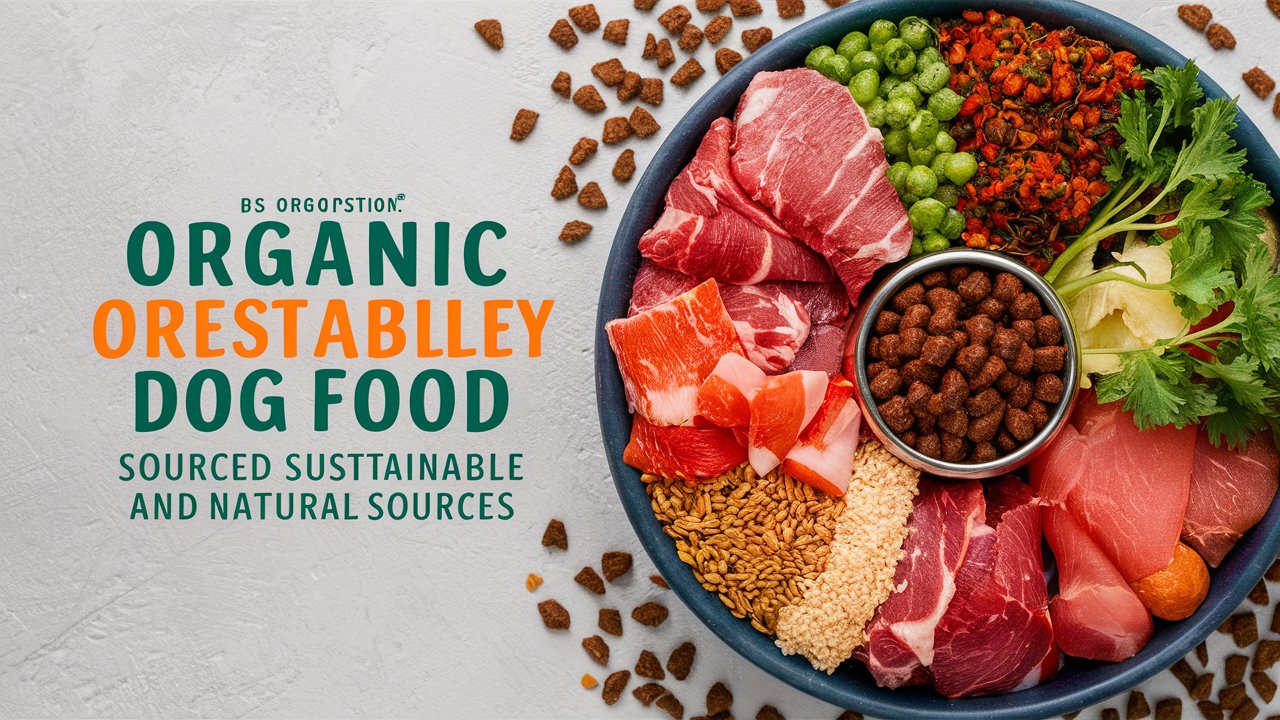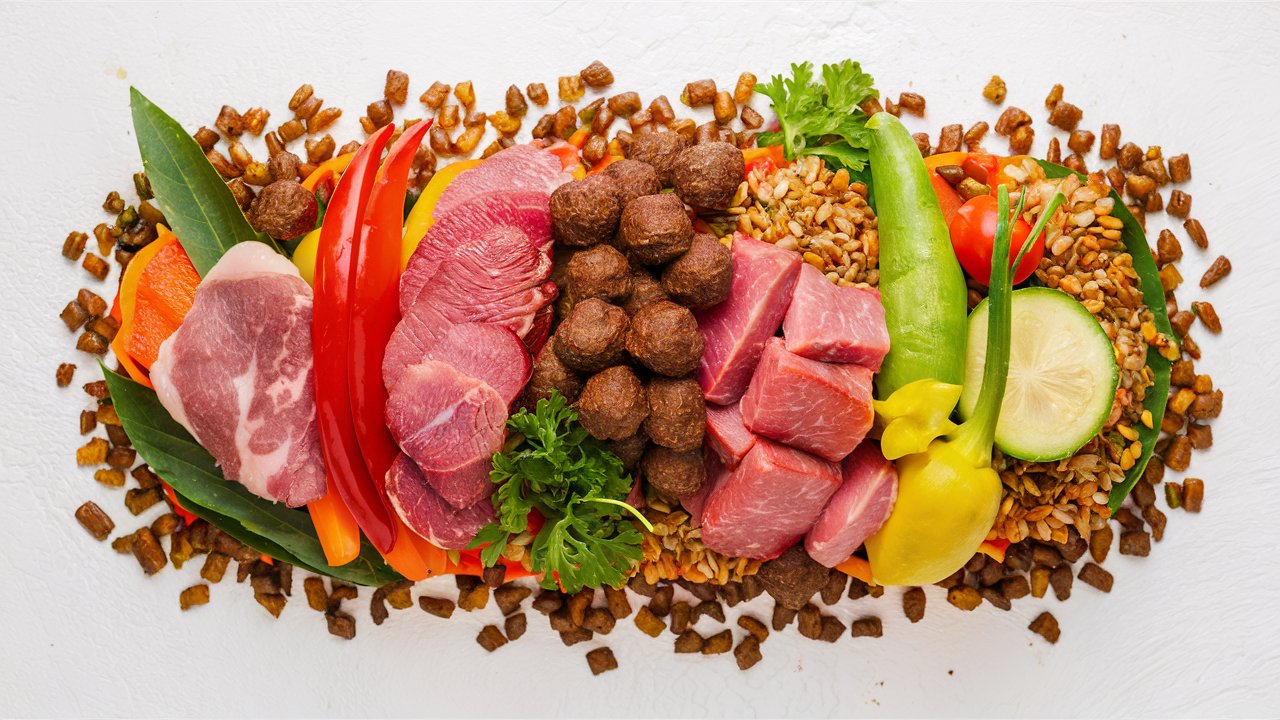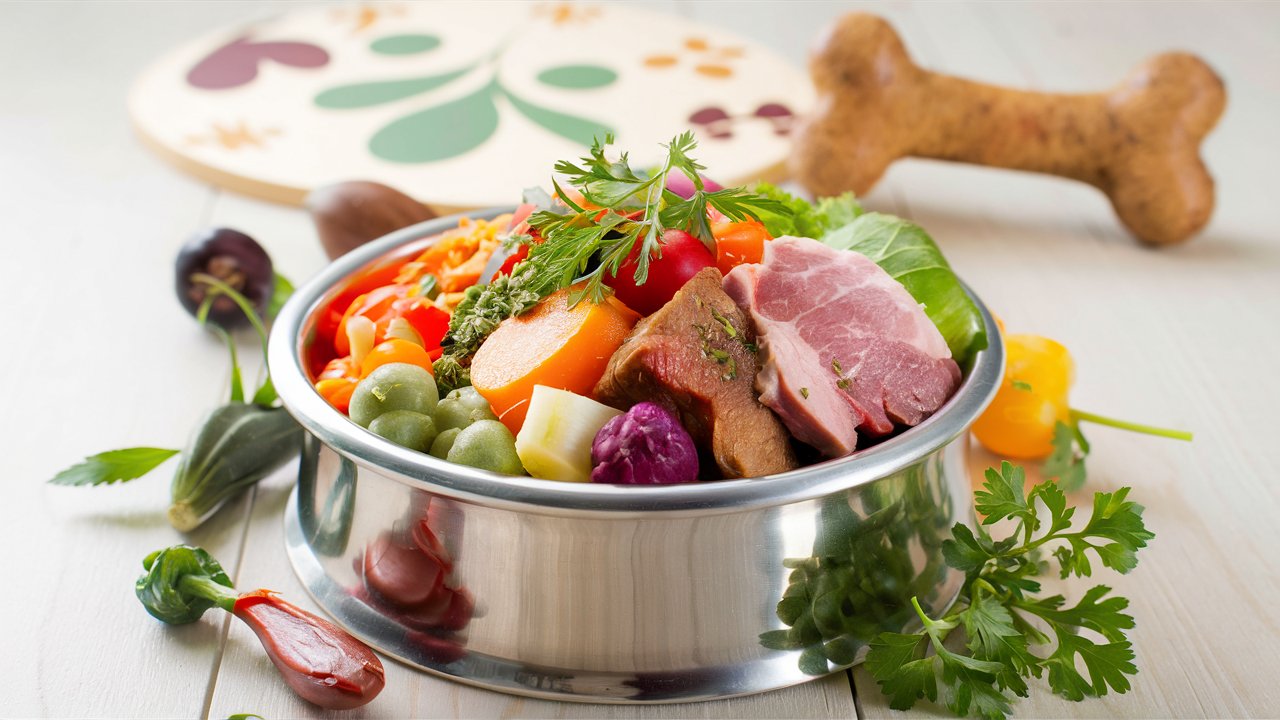The Ultimate Guide to Organic Dog Food: Benefits, Choices, and Tips
As dog owners, we want the best for our furry friends. Their health and well-being are paramount, and one of the most significant contributors to their health is their diet. Just as humans are shifting towards organic foods for better health, many pet owners are now exploring organic dog food options for their pets. In this comprehensive guide, we will delve into the benefits of organic dog food, explore different choices, and provide tips to make the switch smoothly.
Why Choose Organic Dog Food?
1. Health Benefits
Organic dog food is made from ingredients that are grown without synthetic pesticides, herbicides, and fertilizers. This means fewer chemicals in your dog’s diet, potentially reducing the risk of health issues related to pesticide exposure. Organic dog food often contains higher-quality ingredients, leading to better overall nutrition. This can result in improved digestion, shinier coats, and higher energy levels.
2. Fewer Allergies and Sensitivities
Dogs, like humans, can develop allergies or sensitivities to certain foods. Conventional dog foods can contain artificial additives, preservatives, and fillers that may trigger allergic reactions. Organic dog food, with its natural ingredients, is less likely to cause such issues. For instance, my own dog, Max, used to suffer from itchy skin and digestive problems. After switching to organic dog food, his symptoms significantly improved, highlighting the potential benefits of a cleaner diet.

3. Better Taste and Quality
Organic dog foods are often made with high-quality, human-grade ingredients. This not only means better nutrition but also better taste. Many pet owners report that their dogs seem to prefer the taste of organic food over conventional options. This is likely due to the fresher, more natural ingredients used in organic formulations.
Types of Organic Dog Food
Organic dog food comes in various forms, allowing pet owners to choose the best option for their pets based on their needs and preferences.
1. Dry Kibble
Dry kibble is one of the most popular choices for dog owners due to its convenience and long shelf life. Organic dry kibble is made with organic grains, vegetables, and high-quality protein sources. Brands like Castor & Pollux and Organix offer excellent organic kibble options.
2. Wet Canned Food
Wet canned food is another option that many dogs find palatable. It can be more expensive than dry kibble but offers high moisture content, which can be beneficial for dogs that don’t drink enough water. Look for brands like Newman’s Own Organics, which provide nutritious, organic canned food options.
3. Dehydrated and Freeze-Dried Food
Dehydrated and freeze-dried dog foods are gaining popularity due to their high nutrient retention and long shelf life. These foods need to be rehydrated before feeding, making them a bit more labor-intensive but worth the effort for the nutritional benefits. Brands like The Honest Kitchen offer excellent choices in this category.
4. Raw Organic Dog Food
Raw diets, also known as BARF (Biologically Appropriate Raw Food), are made from uncooked meats, bones, and organic fruits and vegetables. Advocates of raw diets argue that they are the closest to a dog’s natural diet. However, it’s crucial to handle and prepare raw food safely to avoid bacterial contamination.

Personal Anecdote: Transitioning to Organic Dog Food
I remember when I first decided to switch Max to organic dog food. I was hesitant at first, worried about the cost and whether he would actually like the new food. Max had always been a picky eater, turning his nose up at many commercial brands. But after doing some research and consulting with our vet, I decided to give it a try.
I started with a mix of organic dry kibble and wet canned food. To my surprise, Max took to it immediately. Within a few weeks, I noticed a significant change in his coat—it was shinier and softer. His digestive issues also improved, and he seemed to have more energy during our daily walks. Seeing these positive changes made me a firm believer in the benefits of organic dog food.
Tips for Transitioning to Organic Dog Food
Switching your dog to organic food requires careful planning to ensure a smooth transition without upsetting their stomach. Here are some tips to help you make the switch:
1. Gradual Transition
Start by mixing a small amount of the new organic food with your dog’s current food. Gradually increase the proportion of organic food over a week or two. This gradual transition helps prevent digestive upset.
2. Monitor Your Dog’s Health
Keep an eye on your dog’s health and behavior during the transition period. Look for any signs of digestive issues, allergies, or changes in energy levels. If you notice any problems, consult your veterinarian.
3. Read Labels Carefully
Not all organic dog foods are created equal. Look for products that are certified organic and read the ingredient list carefully. Avoid foods with artificial additives, preservatives, and fillers.
4. Consult Your Veterinarian
Before making any significant changes to your dog’s diet, it’s always a good idea to consult with your veterinarian. They can provide guidance based on your dog’s specific health needs and help you choose the best organic food for them.
Common Misconceptions About Organic Dog Food
Despite its growing popularity, there are still several misconceptions about organic dog food. Let’s debunk a few of them:
1. It’s Too Expensive
While organic dog food can be more expensive than conventional options, it’s essential to consider the long-term health benefits. Investing in high-quality food now can potentially save on veterinary bills in the future.
2. It’s Just a Trend
Organic food is not just a trend; it’s a movement towards healthier, more sustainable eating habits. The benefits of organic food for humans and pets alike are backed by research and real-life experiences.
3. It’s Not Nutritionally Balanced
Many people believe that organic dog food lacks the necessary nutrients. However, reputable organic dog food brands formulate their products to meet the nutritional needs of dogs, ensuring a balanced diet.

Conclusion
Choosing organic dog food is a step towards better health and well-being for your furry friend. With numerous options available, from dry kibble to raw diets, there’s an organic food to suit every dog’s preference. The benefits of organic dog food, including reduced allergies, better taste, and higher quality ingredients, make it a worthwhile investment.
Transitioning to organic dog food requires careful planning and monitoring, but the positive changes you’ll likely see in your dog’s health and happiness make it all worth it. Just as we seek the best for our health, our pets deserve the same level of care and attention in their diets.
In my journey with Max, switching to organic dog food was one of the best decisions I made for his health. His improved coat, better digestion, and increased energy levels were clear indicators of the positive impact of a healthier diet. So, take the plunge and explore the world of organic dog food—your dog will thank you for it.





